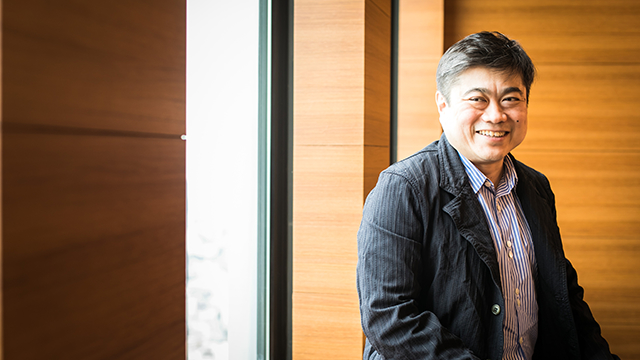




























Joichi Ito / Director, MIT Media Lab
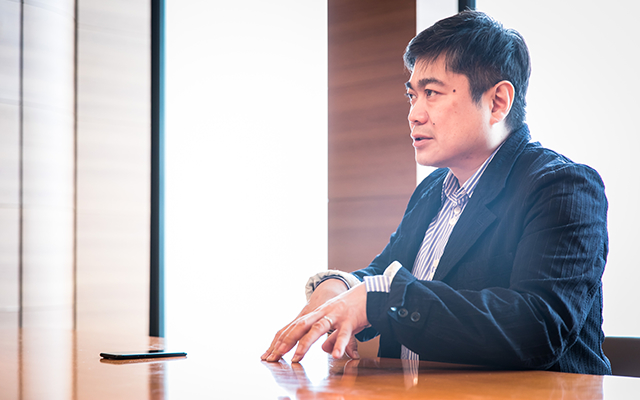
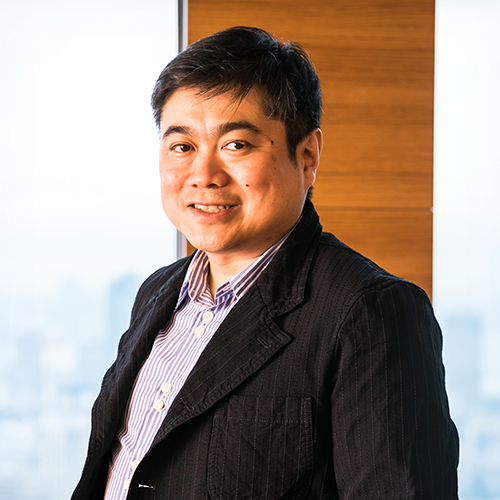
Joi Ito is the director of the MIT Media Lab, Professor of the Practice at MIT and the author, with Jeff Howe, of Whiplash: How to Survive Our Faster Future (Grand Central Publishing, 2016). He is a Visiting Professor of Law from Practice at the Harvard Law School. Ito is chairman of the board of PureTech Health and serves on several other boards, including The New York Times Company, the MacArthur Foundation and the Knight Foundation. He also serves as a strategic advisor to the Sony Corporation. He is the former chairman and CEO of Creative Commons, and a former board member of ICANN, The Open Source Initiative, and The Mozilla Foundation. He is a serial entrepreneur who helped start and run numerous companies including one of the first web companies in Japan, Digital Garage, and the first commercial Internet service provider in Japan, PSINet Japan/IIKK. He has been an early-stage investor in many companies, including Formlabs, Flickr, Kickstarter, littleBits, and Twitter.
Ito has received numerous awards, including the Lifetime Achievement Award from the Oxford Internet Institute and the Golden Plate Award from the Academy of Achievement, and he was inducted into the SXSW Interactive Festival Hall of Fame in 2014. In 2017, he received the IRI Medal. He has been awarded honorary doctorates from The New School and Tufts University and is a member of the American Academy of Arts and Sciences.
To bring about innovation, we must work across boundaries. The "Art & Science Session" at the ICF 2017 will bring together the fields of art, design, and science. At ICF 2016, Mr. Ito advocated the need for engineers with a basic understanding of art and design and designers who are familiar with technology. We sat down with him for an interview about the “Art and Science Session,” which will focus on “Human enhancement and a world of designed symbiosis.” What will be discussed at the session, and why do we need to pay attention to these topics?

In recent years, people have gotten very interested in artificial intelligence and robots. There have long been two camps: those who believe that artificial intelligence and robots will serve to enhance humans in the future, and those who believe that they will come to exist independently from humans. I count myself as a member of the “enhancement” camp. I believe that artificial intelligence and robots will serve to help the world evolve as they enhance both individual people and society in general.
Meanwhile, when I talk with people working on medical enhancements involving the brain or prostheses, where a lot of cutting-edge research is happening, I hear them say that they’ve been securing budgets for and presenting research about topics related to overcoming problems and handicaps. However, even they sometimes admit that they really want to work on “enhancing” the body.
And while it makes sense for the medical field to focus on developing a lot of technologies that are about returning the body to a state of good health, in my opinion, we also have to pay attention to the fact that those same technologies can be used to “enhance” bodies. Why? Because those enhancements could cause ethical problems and become the source of new kinds of disparities in society. And I think that the question of what a society enhanced by artificial intelligence is, how people live in that kind of society, is also important.
Look at one of the people who will take the stage during our session, a prosthesis artist called Viktoria Modesta. She and other people who wear prostheses use these artificial limbs in daily life. However, they’re aware that they are enhanced human beings instead of people with disabilities. Also, there are runners with prosthetic legs who are faster than Olympic athletes. Various needs and opinions are being discussed around the Paralympics, and I think it’s likely that future Paralympics will feature events for athletes with enhancements.
Talking about enhancements has been somewhat taboo up until now. However, I think we would do well to have a proper debate about them soon. That’s how we decided upon the topic “Human enhancement and a world of designed symbiosis.”
Actually, my first decision when I entered the lab in 2011 was to approve the hiring of a prosthetics scientist who could connect bodies and robots in a robotic prosthetics laboratory. Over the course of the next five years, surgeons at a hospital in Boston and the MIT Media Lab made such progress that they became able to carry out joint research that involved simultaneously performing lower leg amputations and prosthetic surgery. They can also publish research about robotic prosthetics that connect artificial limbs to nerves. These kinds of things used to be the stuff of science fiction, but step by step, they’ve become a reality.
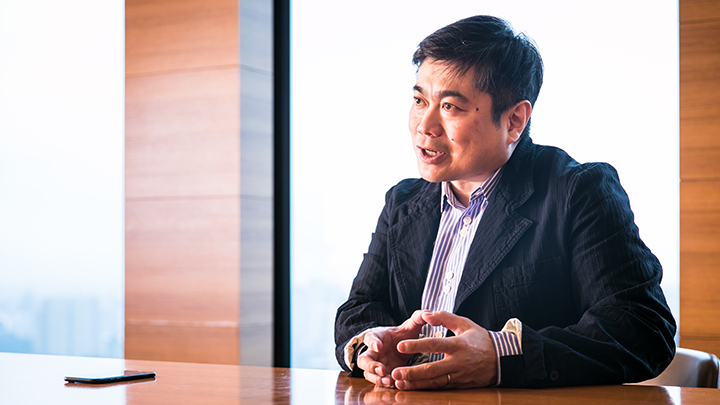
Take, for example, a computer interface. Right now, when we use a smartphone or a computer screen, the interface only reacts to things we do on purpose. However, if we were equipped with all sorts of sensors or artificial intelligence, it would be possible for there to be a reaction to—for example—an increase in our heart rate, even when we’re not doing anything on purpose. Using artificial intelligence, we could “make things happen” without deliberately doing so.
The important thing here is, to what extent do people act deliberately and to what extent will the environment act without deliberate human input? In other words, what do we delegate to artificial intelligence or robots, what kind of sensitivity do we enhance?
What I want to highlight is how discussions about these topics are moving in different directions in different countries. Take the example of eating in a restaurant. In America, people consider it a sign of extravagance to place very specific orders—“I want a large portion, with less dressing and a double helping of croutons,” that sort of thing. In Japan, on the other hand, extravagance means not thinking about anything. The customer doesn’t think about anything; instead, the restaurant—the environment, if you will—infers the will of the customer and basically goes “I imagine that you want this, this, and this.” In these two examples, people would want artificial intelligence to contribute very different things.
Also, we often say that people who can act according to their own feelings are the ones with the most freedom. But where do these feelings come from? There are all kinds of chemical components in the body involved, and some aspects of how we feel are unconscious. And in reality, our unconsciousness and those chemical components can be influenced from the outside.
For example, a friend of mine takes medication that manipulates his hormones. He can essentially tune himself to change his personality from day to day, calibrate his settings so he can take on the personality he prefers. He spends his life logging in to his preferred self and doing everything he wants to do. In those kinds of situations, it’s also important for us to question whether the human is the only one involved in the decision-making process or whether there is a role played by their family, or society, or their company.
If we broaden our horizons to the whole city, there are a variety of other factors that work to shape human sensitivities besides the biotechnology that I just explained—lighting, smells, and so on. But while all this is interesting from a technical point of view, I want us to think more about the ethical side of things.
And I think that considering those cultural backgrounds is important because they’re profoundly connected to the interfaces of the future—to how we will enhance sensitivities.
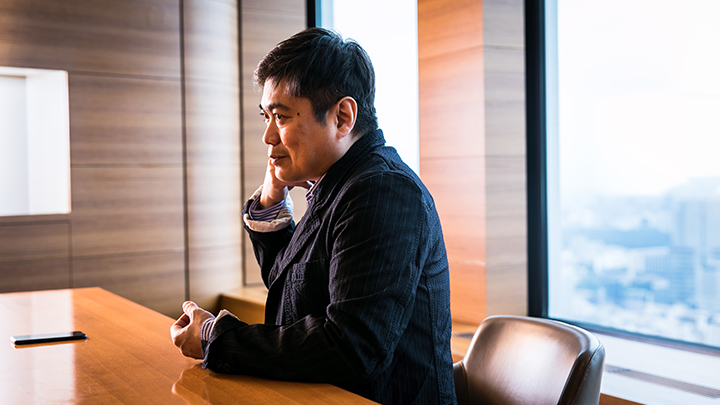
I feel that today’s society is one that is naturally evolving towards a society that is optimized for people who have power. However, when you look at the recent environmental problems, you see that if we focus only on making things better for people with power, the environment gets destroyed. The result is a situation in which even those with power are in trouble. It works the same when it comes to the relationships between politicians and citizens, or companies and customers. The system has to work well. When you’re considering society as a system, you absolutely must pay attention to who benefits from things.
You could call this an ethics-based way of looking at things, but when you consider systems from an evolutionary or an environmental science perspective, you see that some things that aren’t present in the existing system are very important. For example, one urban development business person whom I know well looks at cities not as aggregations of buildings, but as scientific systems. That means acknowledging that a city contains all kinds of beings, like microorganisms, that work to make the whole steadily more complex. Individual human beings then become aware of the variety of beings around them, and their relationships with those beings are redesigned. It’s called participant design, in contrast to the top-down design that architects used to practice in the past. Perhaps all participating individuals becoming designers of some kind is what town management and city planning are about today.
Take traffic jams. When Japanese drivers get caught in a traffic jam, they just go with the flow. In Boston, it’s the exact opposite: drivers will make the traffic jam worse by arbitrarily cutting in, honking their car horns, and so on. When drivers adopt an overly strong “me against the traffic jam” sort of attitude, the overall system doesn’t work properly. There’s a cultural difference there after all.
What changes such cultures is actually things like music, fashion, and communication between individuals—and technological innovations in those areas influence how the structure of the system changes. And, as the natural environment that continually maintains its balance demonstrates, when you make a system that has a low environmental impact, new technologies that appear and spread through that society will spontaneously start to adapt. I think that would be a healthy society.
And then, when society as a whole moves with the kind of ethical sensibility possessed by those Japanese drivers I just talked about, it will recover and achieve symbiosis in a spontaneous way. I think it’s dangerous when people behave as if they’re fighting each other, like they do in America. That’s why I want to bring these ethical and cultural viewpoints to the table when we discuss an enhanced society.
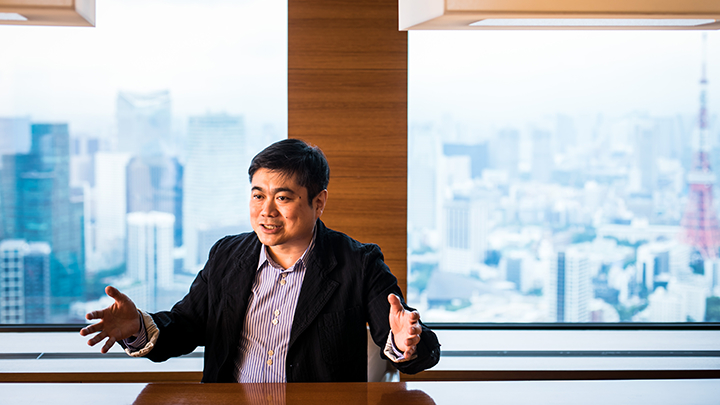
We're gaining more and more understanding of systems that represent what happens when people live in outer space. We have amazing systems for medical care and agriculture, and we’re making progress towards understanding those systems. What we need to make progress towards from now on is bringing together people who manage complex systems and having them talk about how to design these systems, without letting the discussions stop at just abstract arguments. Also, I think all systems are actually connected, so it’s also important to consider complex “systems of systems,” whether it’s in cities or in natural environments.
We have an increasing number of tools available that can be used to tackle that kind of “complex system design,” first and foremost artificial intelligence and big data. However, we have not yet reached the point where scientists and designers join forces to apply “design thinking” to the question of how to form complex systems. I feel that discussions across boundaries are still in their early stages. That’s why I think it’s incredibly significant that we have this kind of open conference, gather people who don’t think of themselves as designers, and tackle themes that require expertise from art and design as well as science.
